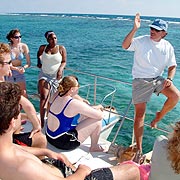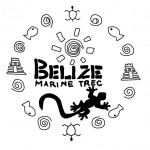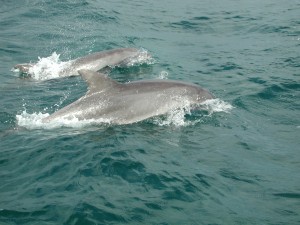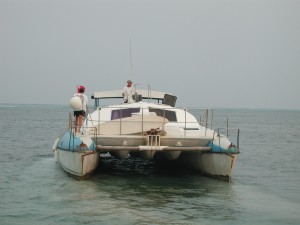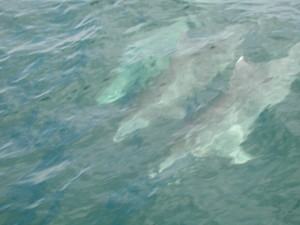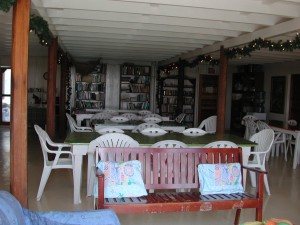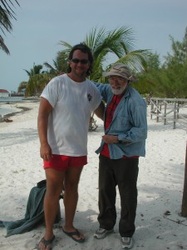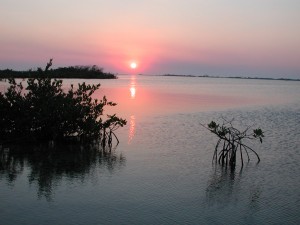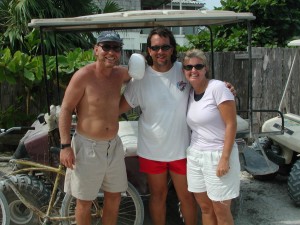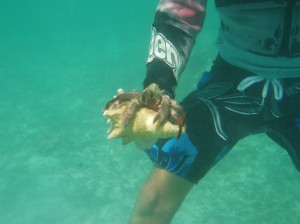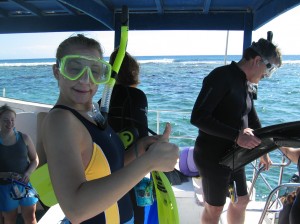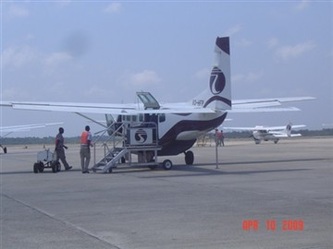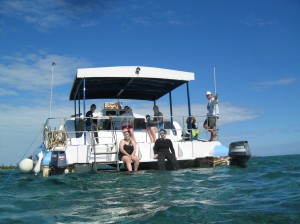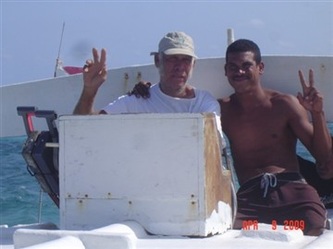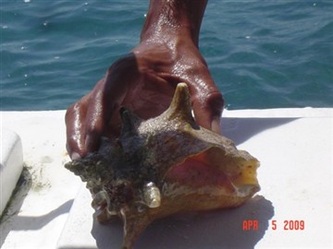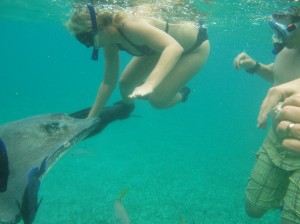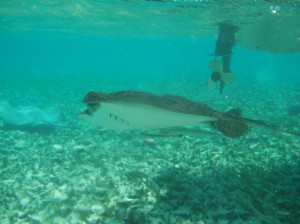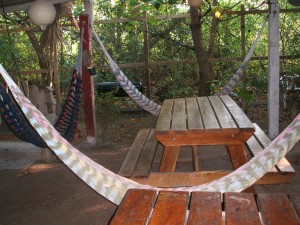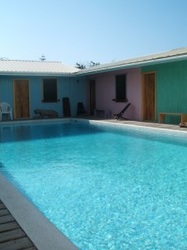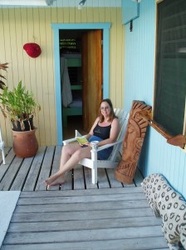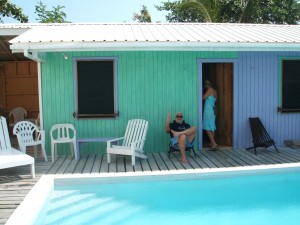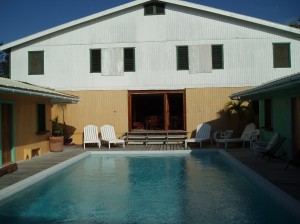TREC-Tropical Research & Education Center
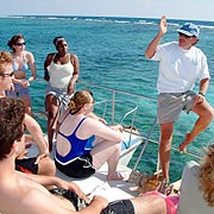
For More Information about TREC - Tropical Research & Education Center
We are an organization dedicated to Research, Education and Conservation. We are a school that provides visiting Professors and their students with all the components necessary for conducting university level courses. Belize Marine Tropical Research and Education Center is in its 17th year of advancing coral reef education and research. We work with visiting researchers, foreign and local undergraduates, graduate students, and high school students with marine biology interests. We offer a large facility that can accommodate more than 50 students for room, board and course work. Available is a Research Library, Natural History Museum, classrooms, wifi, laboratory, fresh water swimming pool, fleet of boats and a remote field station, Atlantis. Our staff includes Ph.D. Marine Biologists, Scuba Instructors, Registered Nurse, Licensed Captains and Tour Guides. Come visit!
USA TODAY (says) - Coastline class not just a day at the beach By Mary Beth Marklein, USA TODAY SAN PEDRO, Belize — Yes, they’re spending a week on the coast of the Caribbean sea in 80-degree weather. And yes, they have to wear bathing suits every day.
Ken Mattes of Belize Marine Trec prepares Elon University sudents for exploration of the reef off Ambergris Caye in Belize.
So go ahead and envy the Elon University students enrolled in a study abroad marine biology course here. Just don’t call it a day at the beach.
“This is no spring break,” says biologist Ken Mattes, director of Belize Marine Trec, a tropical research and education center that hosts college groups. Fun? Yes. But it’s “the greatest kind of fun from an academic point of view. They’re having fun learning. What could be better than that?”
In fact, the scuttlebutt on campus back in Elon, N.C., is that this course, Field Biology in Belize, is one of the most demanding.
The tour begins in the rainforest, with a series of exercises to familiarize students with scientific methodology. Each day begins with a bird walk at 6:30 a.m., and the promise of a test at the end of their stay. How to distinguish between a tropical kingbird and a social flycatcher, both of which have yellow breast and black heads? Look for the white ring around the flycatcher’s head. The rest of the time, days and nights, is devoted to measuring, counting, categorizing, observing, analyzing and concluding things about the important roles played by epiphytes, leafcutter ants and other members of the rainforest ecosystem.
Once on the coast, time is more loosely structured. There are snorkeling labs all but one day, and students work on group projects, applying principles they learned in the rainforest labs and field work. Mattes typically lectures students on how global warming threatens the already disappearing coral reefs. One of their final exams, a “fish and coral practical,” is conducted under water, using waterproof paper.
“You work for what you get,” says Monica Van Dongen, a sophomore biology major who has heard the typical class average in past years is a C. Noting that students had required reading over the holidays, and took their first test before setting foot on an airplane, she says, “I read the entire book and I ended up getting a C.”
Open to science and non-science majors, many students say that, aside from the potential for adventure, they were attracted to the course’s format.
“It’s easier to concentrate on my science credit all at once rather than trying to do my journalism and extracurriculars,” says Amy Jo Jenkins, 21, a double major in journalism and international studies. Plus, she says, it beats the alternative: a four-credit science course over a 14-week semester would involve a three hours of lectures each week along with a weekly three-hour lab. “You don’t have to sit in a classroom day in and day out,” she says.
Biology professors Janet MacFall and Nancy Harris, who led the course, agree it’s an exhausting schedule, but say the concepts they address are relatively simple. And while a lot of information is imparted, their larger academic goals more general.
“We’re not looking for the detail we would have at Elon. We’re looking for clarity, that you understand what we did,” MacFall says.
Even more, the course urges students to consider biology “in the broader picture of stewardship,” and recognize that “people aren’t independent of the world around them,” MacFall says. “My personal goal is to have the students come away caring about this place.”
We are an organization dedicated to Research, Education and Conservation. We are a school that provides visiting Professors and their students with all the components necessary for conducting university level courses. Belize Marine Tropical Research and Education Center is in its 17th year of advancing coral reef education and research. We work with visiting researchers, foreign and local undergraduates, graduate students, and high school students with marine biology interests. We offer a large facility that can accommodate more than 50 students for room, board and course work. Available is a Research Library, Natural History Museum, classrooms, wifi, laboratory, fresh water swimming pool, fleet of boats and a remote field station, Atlantis. Our staff includes Ph.D. Marine Biologists, Scuba Instructors, Registered Nurse, Licensed Captains and Tour Guides. Come visit!
USA TODAY (says) - Coastline class not just a day at the beach By Mary Beth Marklein, USA TODAY SAN PEDRO, Belize — Yes, they’re spending a week on the coast of the Caribbean sea in 80-degree weather. And yes, they have to wear bathing suits every day.
Ken Mattes of Belize Marine Trec prepares Elon University sudents for exploration of the reef off Ambergris Caye in Belize.
So go ahead and envy the Elon University students enrolled in a study abroad marine biology course here. Just don’t call it a day at the beach.
“This is no spring break,” says biologist Ken Mattes, director of Belize Marine Trec, a tropical research and education center that hosts college groups. Fun? Yes. But it’s “the greatest kind of fun from an academic point of view. They’re having fun learning. What could be better than that?”
In fact, the scuttlebutt on campus back in Elon, N.C., is that this course, Field Biology in Belize, is one of the most demanding.
The tour begins in the rainforest, with a series of exercises to familiarize students with scientific methodology. Each day begins with a bird walk at 6:30 a.m., and the promise of a test at the end of their stay. How to distinguish between a tropical kingbird and a social flycatcher, both of which have yellow breast and black heads? Look for the white ring around the flycatcher’s head. The rest of the time, days and nights, is devoted to measuring, counting, categorizing, observing, analyzing and concluding things about the important roles played by epiphytes, leafcutter ants and other members of the rainforest ecosystem.
Once on the coast, time is more loosely structured. There are snorkeling labs all but one day, and students work on group projects, applying principles they learned in the rainforest labs and field work. Mattes typically lectures students on how global warming threatens the already disappearing coral reefs. One of their final exams, a “fish and coral practical,” is conducted under water, using waterproof paper.
“You work for what you get,” says Monica Van Dongen, a sophomore biology major who has heard the typical class average in past years is a C. Noting that students had required reading over the holidays, and took their first test before setting foot on an airplane, she says, “I read the entire book and I ended up getting a C.”
Open to science and non-science majors, many students say that, aside from the potential for adventure, they were attracted to the course’s format.
“It’s easier to concentrate on my science credit all at once rather than trying to do my journalism and extracurriculars,” says Amy Jo Jenkins, 21, a double major in journalism and international studies. Plus, she says, it beats the alternative: a four-credit science course over a 14-week semester would involve a three hours of lectures each week along with a weekly three-hour lab. “You don’t have to sit in a classroom day in and day out,” she says.
Biology professors Janet MacFall and Nancy Harris, who led the course, agree it’s an exhausting schedule, but say the concepts they address are relatively simple. And while a lot of information is imparted, their larger academic goals more general.
“We’re not looking for the detail we would have at Elon. We’re looking for clarity, that you understand what we did,” MacFall says.
Even more, the course urges students to consider biology “in the broader picture of stewardship,” and recognize that “people aren’t independent of the world around them,” MacFall says. “My personal goal is to have the students come away caring about this place.”
ROOM DESCRIPTIONS
We use a very easy and straight forward pricing system. There are no tax or service charge surprises. Besides our charges you have only (1) International Airfare (2) Domestic airfare (3) Departure Tax if not in ticket.
Accommodations include a single or quad occupancy, depending on availability. Each room has a private bathroom. You get three (3) meals a day, and TREC black bean snacks. Prices includes daily snorkeling trips, evening educational programs, night snorkel, lectures and a beach barbecue on Wednesday nights.
|
